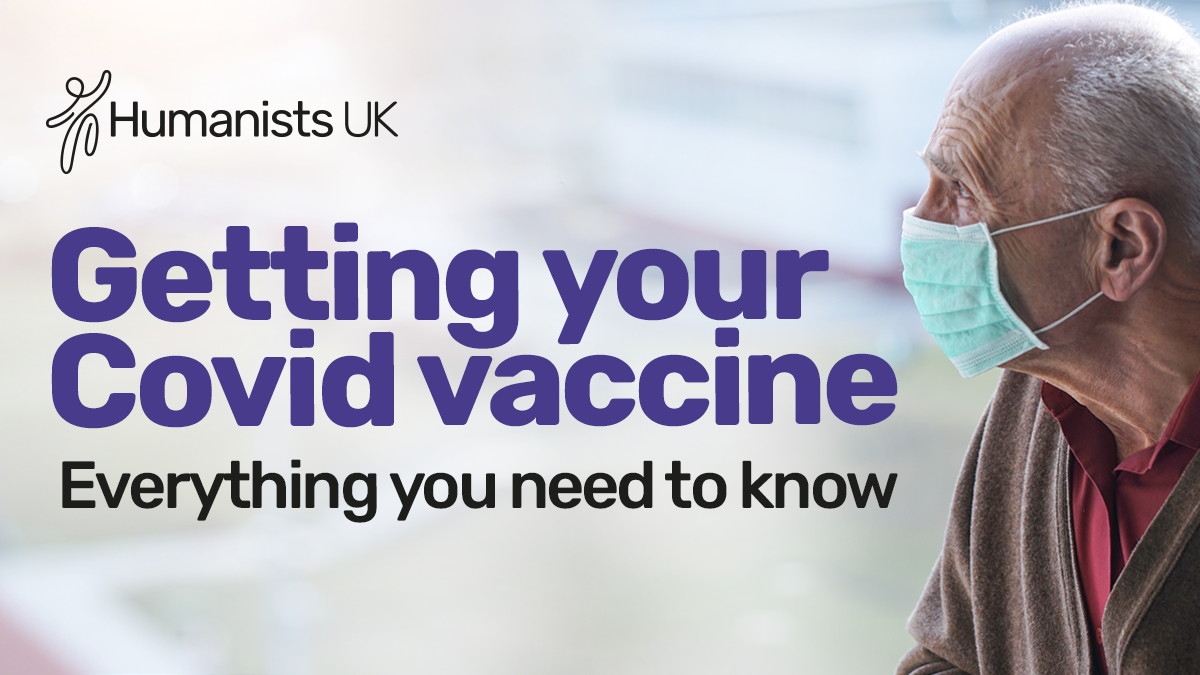
The NHS is rolling out vaccines against Covid-19. The UK has purchased 357 million doses and hopes to vaccinate all adults by the autumn.
We are encouraging everyone to get vaccinated against Covid-19 if they are medically able to.
Our view on the Covid-19 vaccines
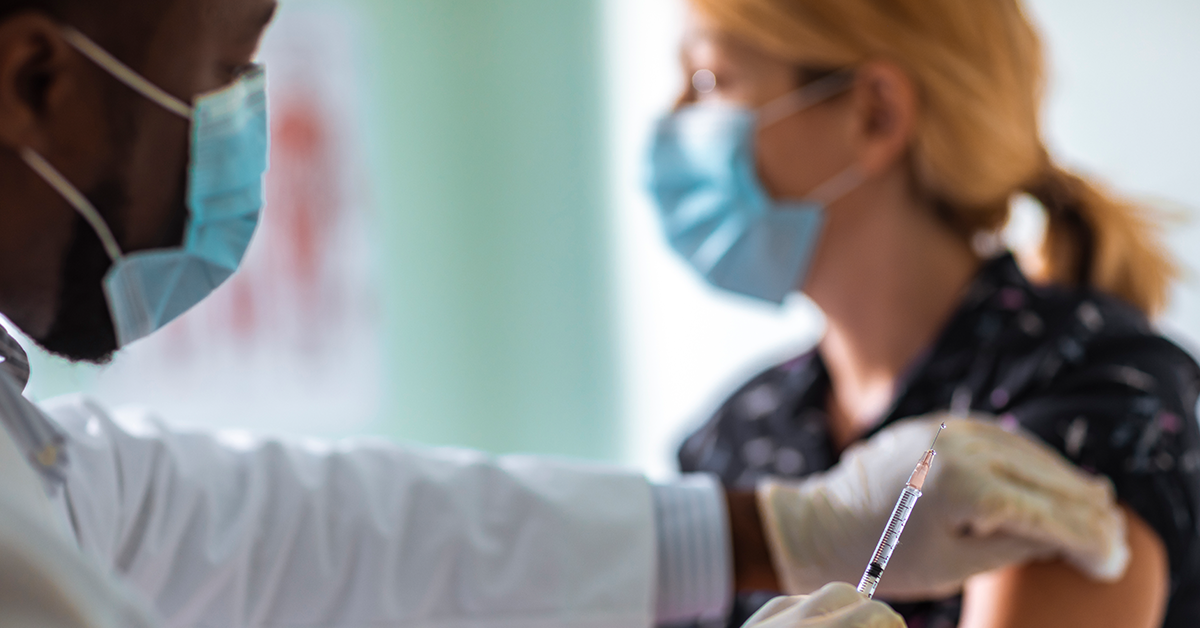
At Humanists UK, we trust to the scientific method when trying to understand how the universe works; we support humanists in making their ethical decisions based on reason and empathy, guided by concern for the welfare and fulfilment of human beings and other sentient animals; and support them to make a positive contribution to building a better society.
That approach leads us to support the uptake of the Covid-19 vaccines. The published data on the efficacy of the authorised vaccines, which have been through random controlled trials and peer review, suggests that they are effective and safe.
This evidence has been produced independently of any government agency and has gone through the trial processes and safety checks that we would expect of all vaccines before being made available to the general public.
We also know that the overwhelming majority of humanists share our views – if anything, humanists and the non-religious are more in favour of vaccination than the public as a whole. A survey of all our members and supporters found that 95% of responding members and 92% of responding supporters saying they intended to get vaccinated (with 1% and 2%, respectively, saying they are unsure), while YouGov polling data suggests that humanists are more likely to get vaccinated than the population as a whole.
How does it affect me?
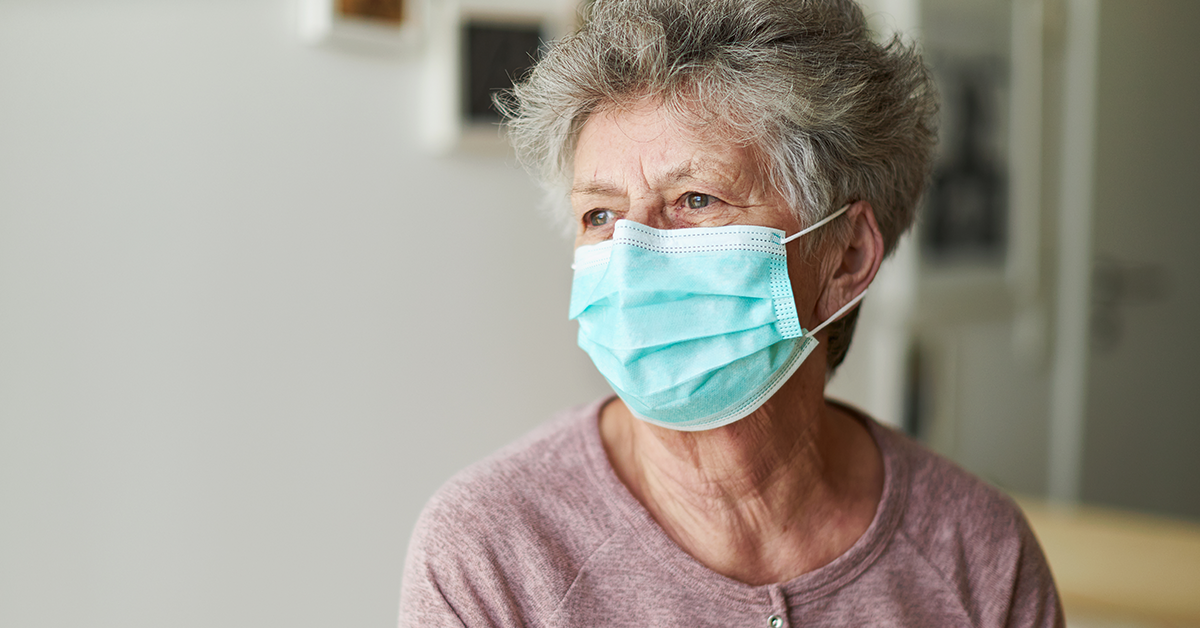
The vaccine roll-out will affect every adult in the UK, who, over the course of this year, will be offered to be vaccinated. This involves receiving two injections into the arm a few or several weeks apart.
The vaccine is voluntary but, unless you are exempt, we strongly encourage you to get the vaccine when it is offered to you. (The exemptions are children, on whom the vaccines have not yet been fully tested, and those who have a legitimate medical exemption, for example, because they have had a serious allergic reaction to a vaccine in the past. The vaccine regulator has also advised that pregnant people and those under 40 with no underlying health conditions should be offered an alternative vaccine to Oxford/AstraZeneca, due to reports of an extremely rare blood clotting problem. For people aged 40 or over and those with other health conditions, the benefits of being vaccinated outweigh any risk of clotting problems.)
Even if you, personally, are at low risk of becoming seriously ill with Covid-19, you may still catch it and pass it on to someone at high risk, or to others who in turn pass it on. It’s only by a very strong majority getting vaccinated that we can hope to remove the risk.
- Make sure you are registered with a GP surgery. You can register with a GP if you do not have one.
- Wait to be contacted. The NHS will let you know when it’s your turn to have the vaccine. It’s important not to contact the NHS for a vaccination before then.
- Raise awareness. Speak to your friends, colleagues, and loved ones and encourage them to take the vaccine as well if they are eligible.
What are the Covid-19 vaccines and how do they work?

Vaccines have been around for over a thousand years but took the modern form we recognise today in the eighteenth century when the scientist Edward Jenner successfully developed a vaccine to protect against smallpox.
All vaccines work on the same principle. The vaccine contains non-infectious material derived from the pathogen – which cannot harm you – that teaches the body to recognise and be able to fight the real pathogen should you encounter it. Vaccines have been hugely successful in eradicating or almost completely eradicating diseases such as smallpox and polio. Other diseases that are still globally widespread are largely under control in the UK today, thanks to vaccines – for example, rabies, tetanus, diphtheria, measles, and rubella.
As of mid-2021, three Covid-19 vaccines have been approved for use in the UK – produced by Pfizer/BioNTech, Oxford/AstraZeneca, and Moderna.
Based on evidence from clinical trials, these UK-approved vaccines are highly effective in preventing Covid-19.
When will I get the vaccine?
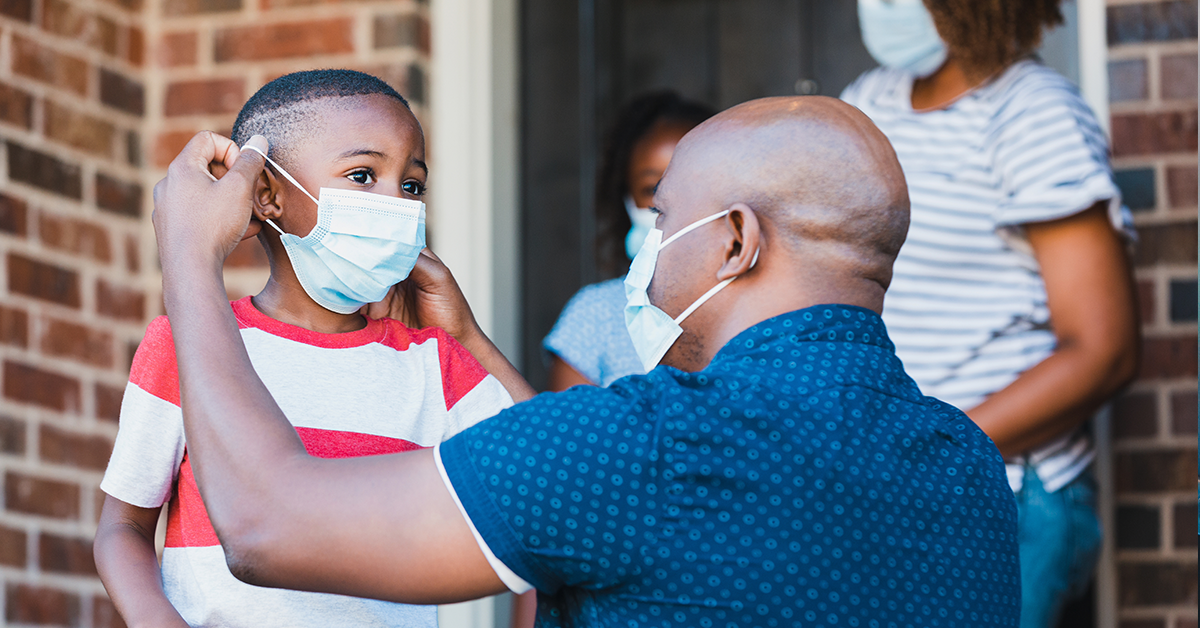
The vaccines are being rolled out based on medical need, starting with those who are most vulnerable to infection and older people. The Government has produced guidance on when they hope the vaccine will be available to different groups.
- Stay within the social distancing rules. The best way to help stop Covid-19 is to make sure you don’t catch it or spread it to others. So please follow the Government’s guidance on social distancing and other preventative measures.
- Be ready for your vaccine. There is a huge demand for the vaccine as the overwhelming majority of people in the UK will need to be vaccinated to end the pandemic. Look out for your vaccine notification and make an appointment as soon as you receive it.
- Volunteer with the vaccine roll-out. Your NHS needs you! This vaccine roll-out is the largest ever by the NHS and it needs volunteers. You can find out more about helping with the delivery of the vaccine in England, Wales, and Northern Ireland, whether or not you have past experience working in a healthcare setting.
I’ve already been vaccinated. Can I now go back to life as normal?
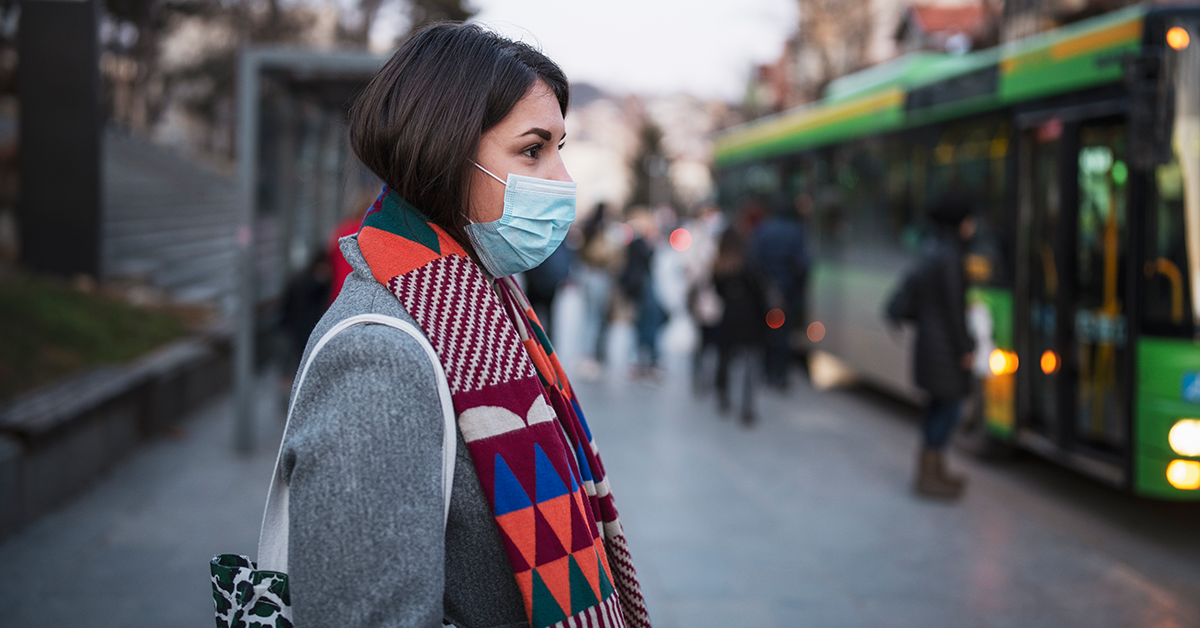
According to the NHS, the vaccine should give you good protection against coronavirus, but there is still a chance you can get infected and spread it even if you have been vaccinated. To break the chain of infection, it is important to continue following social distancing guidance and wear PPE, until the end of the pandemic.
